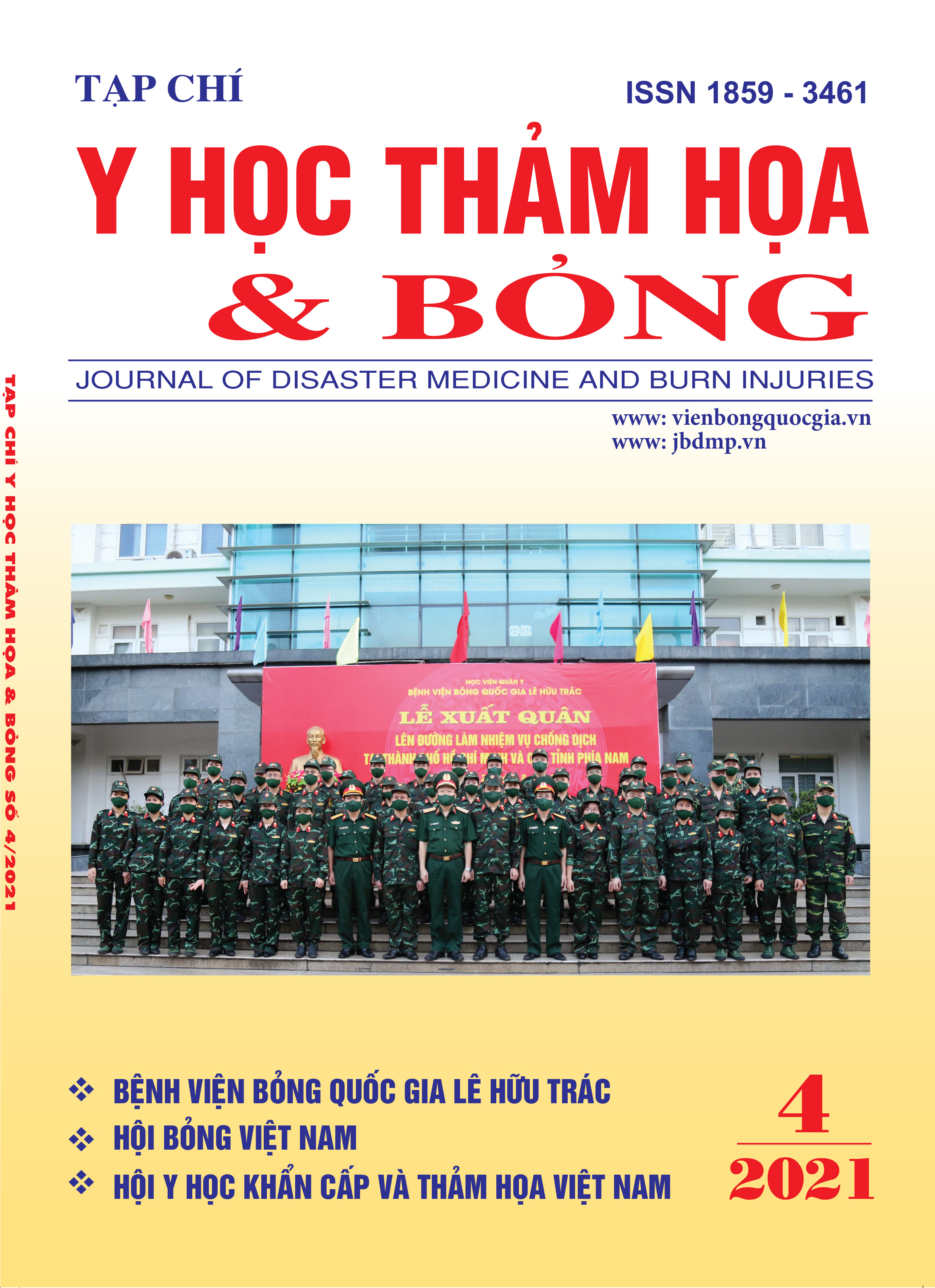Hiệu quả hạn chế của bổ sung albumin ở bệnh nhân bỏng nặng giảm albumin kéo dài.
Nội dung chính của bài viết
Tóm tắt
Đặt vấn đề: Bệnh nhân bỏng với diện tích bỏng ≥ 20% diện tích cơ thể (DTCT) có thể kích hoạt phản ứng viêm nặng, thêm vào đó là tình trạng tăng tính thấm thành mạch và giảm protein máu bao gồm cả albumin. Tình trạng hạ albumin máu kéo dài thường gặp ở bệnh nhân bỏng nặng. Mục đích của nghiên cứu này là xác định hiệu quả của truyền albumin trên bệnh nhân bỏng nặng có kết hợp với tình trạng giảm albumin máu.
Phương pháp: Chúng tôi đã tiến hành nghiên cứu hồi cứu trên 38 bệnh nhân bỏng có diện tích bỏng lớn hơn hoặc bằng 20% diện tích cơ thể từ tháng 1 năm 2007 đến tháng 12 năm 2018 ở bệnh viện đa khoa Veteras - Đài Loan. Tiến hành đánh giá đặc điểm bệnh nhân, mức độ bỏng, tình trạng cân bằng dịch.
Kết quả: Không có sự khác biệt đáng kể về đặc điểm cơ bản ở nhóm những bệnh nhân được truyền albumin với số lượng nhỏ hơn 25mg/kg/%DTCT/ngày và nhóm những bệnh nhân đã được truyền với số lượng lớn hơn 25mg/kg/%DTCT/ngày. Không có sự khác biệt về kết quả điều trị liệu pháp thay thế thận, thời gian thở máy, thời gian nằm viện và tỷ lệ tử vong giữa hai nhóm. Tỷ lệ CRP/albumin trong máu có liên quan đến tỷ lệ tử vong với (p = 0,036).
Kết luận: Truyền một khối lượng lớn albumin trong điều trị tình trạng giảm albumin máu kéo dài ở bệnh nhân bỏng nặng không làm giảm tỷ lệ tử vong.
Chi tiết bài viết
Từ khóa
Bổ sung albumin, bỏng nặng, tử vong


